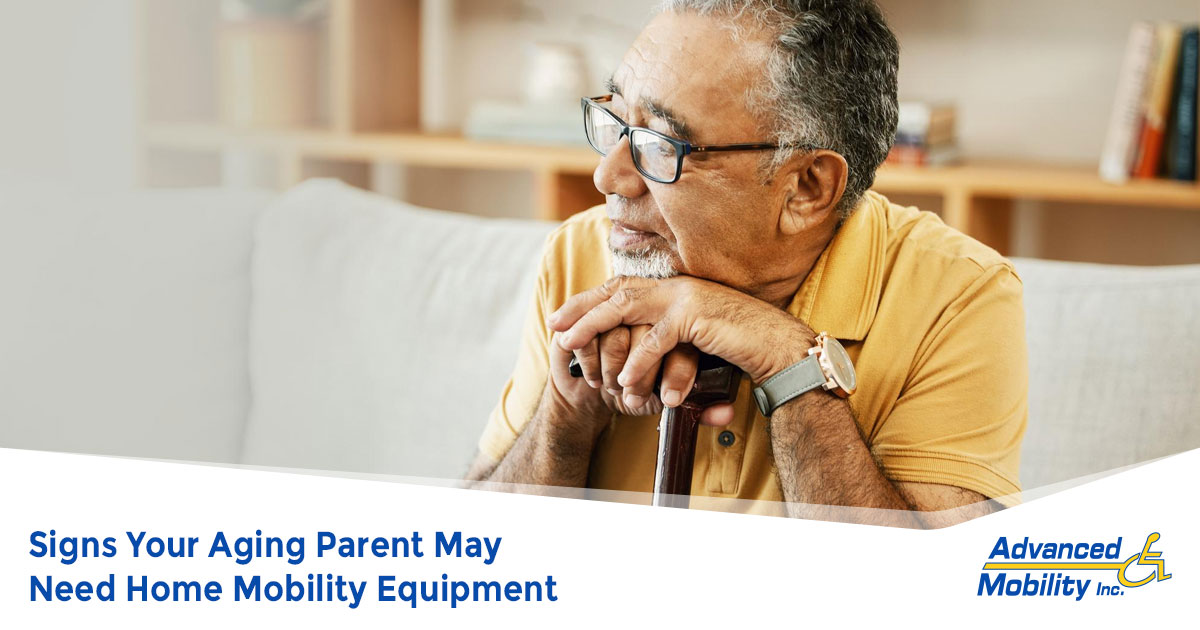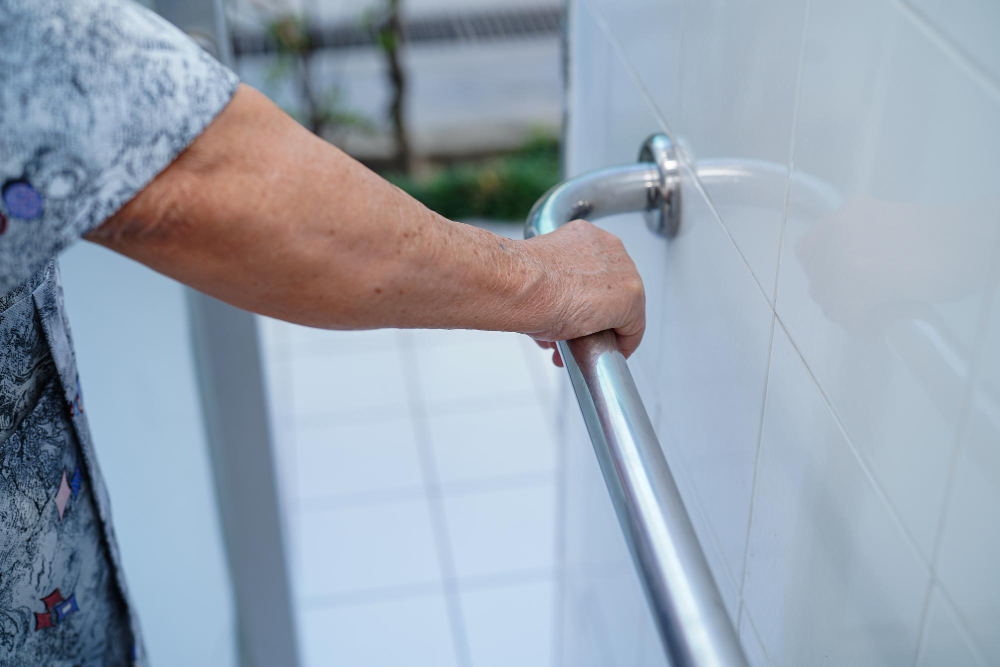Ensuring safety and independence in your aging parents’ home is important. Many older adults prefer to stay in the comfort and familiarity of their own homes for as long as possible. However, mobility challenges can make this increasingly difficult, turning a once safe environment into a potential source of risk. Recognizing the warning signs early can make a significant difference. By incorporating home mobility equipment, you can help prevent injuries, enhance quality of life, and provide peace of mind for the entire family.
What Is Home Mobility Equipment?
Mobility equipment, or solutions, refers to devices that are implemented into homes to make them safer, more accessible to everyone, and much easier to move around in. The equipment or devices you choose to put in your parents’ home can help maintain their independence while reducing the risk of falls or injuries.
Most Commonly Used Mobility Equipment
- Stair lifts allow access to upper floors and a safe descent back down the staircase
- Grab bars are installed anywhere you may need extra stability, including bathrooms, in hallways, near beds, or living room chairs
- Ramps allow wheelchairs and walkers to go up inclines without having a staircase as a barrier
- Bathroom safety modifications is a large category that could include non-slip mats, raised toilet seats, a walk-in tub, grab bars, and shower chairs.
- Ceiling or floor lifts assist in transfers from a bed to a wheelchair, chair, or the bathroom
Choosing the right equipment for your parents’ home requires talking to them to find out about the challenges they face and looking for risks that you could help to alleviate. The equipment you choose to put in the home completely depends on your parents’ individual needs, health conditions, and the type of environment they are living in.
Recognizing The Signs Early
Asking for help may not be easy, and the need to stay independent may cause your parents to try and hide their struggles or downplay them to avoid worrying and overbearing children. However, ignoring the signs can be extremely dangerous and can increase the risk of falls, accidents, and injuries occurring.
By recognizing signs early, you can help your parents:
- Stay safe and prevent falls and accidents
- Remain independent by implementing the right equipment in their home so that they can continue their routine without constant help
- Improve quality of life by adding mobility equipment in the home to provide your parents with comfort, confidence, and safety.
What Signs To Look Out For
Knowing when it is time to start implementing mobility equipment into your parents’ home normally comes down to spotting small changes in their daily life.
Difficulty Using Stairs
Stairs are one of the biggest obstacles for aging adults. If you notice your parent:
- Frequently pausing while going up or down the stairs
- Heavily relying on the wall or railing for support
- Avoiding stairs altogether
- Complaints of pain while using the stairs
If any of the above become apparent, it might be time to consider some mobility devices that could be installed to reduce the stress or pain that using stairs may bring. Consider adding a stair lift, or maybe a home elevator, into your parents’ home to improve their quality of life.
Increased Risk Of Falls
Noticing that they tend to falter, or be at risk of falling, more often is a sign that your parents may need some extra home help.
Warning signs to look out for include:
- Bruises or injuries they can’t remember or explain
- Grabbing onto nearby furniture for balance
- Tripping on uneven flooring or rugs
Falling, especially at an older age, can completely change your life for the worse. Taking preventative measures like installing grab bars, ramps, and adding non-slip flooring or mats will dramatically reduce the risk of accidents.
Changes In Habit Or Daily Routine
Sometimes the signs you are looking for are very subtle, such as your parents slowly changing up their normal routine. Some examples include:
- Skipping showers or baths because getting in and out feels unstable or unsafe
- Avoiding certain rooms in the house, such as the garage or upper-level bedrooms
- Eating less and less over time because the kitchen feels too difficult to access
Creating Makeshift Supports
If your loved one begins relying on furniture or hangs onto the walls for balance and support, it could be time to start adding proper support in the home.
Signs may include:
- Leaning on countertops when standing
- Using a chair as a walker
- Holding onto any nearby furniture when moving from one room to another
Fear Of Being Alone
Awareness of the emotional signals your parents are showing is just as important as the physical ones. If your parent begins to show or express:
- Anxiety about being left home alone
- Shying away from social activities because of mobility concerns
- Constantly worrying about failing with no one to help them
Personal Hygiene And Cleanliness
Personal hygiene and overall cleanliness may be put on the back burner when mobility challenges start to arise, this could include
- Wearing the same clothes over and over again
- A messy and cluttered home
- Struggling to get in and out of the bathtub or shower
- Unkept hair or body odor
Adding in bathroom safety equipment such as bath systems, raised toilet seats, and grab bars can make a big difference in giving back their independence.
Visible Damage In the Home From Accidents
Your parents may be too proud to ask for help themselves; however, looking around the home for signs can often tell you more than they could.
- Dents in walls or furniture from being bumped into
- Broken appliances from being grabbed onto
- Bent stair railing from pulling to hard
Paying attention to these warning signs early on can help prevent accidents and ensure your loved one remains comfortable and safe at home.
Fort Lauderdale Home Mobility Support
Watching your parents struggle with mobility, especially in the comfort of their own home, is difficult, but installing the right mobility equipment can ensure they can continue living safely, comfortably, and independently in the home that they love.
If you are considering adding mobility solutions to your parents’ home, give us a call at 954-888-9292. We are here to help guide you in getting the right support and means to improve the overall quality of life for your parents.







